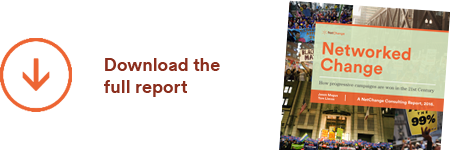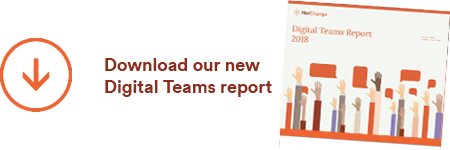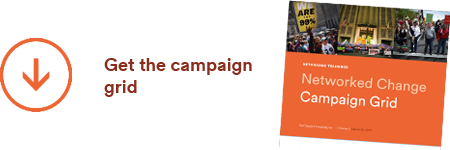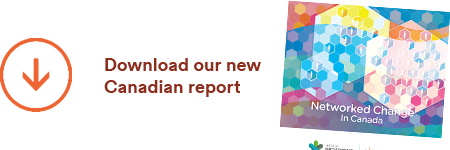
Today we are launching something new, controversial, and maybe even transformative. Two of our partners have taken work they first presented at the Social Tech Training last year and turned it into a manifesto for how the way organizations approach digital today needs to radically shift.
Called “Web Thinking: The choice ahead for movement-leading organizations”, it poses that rather than pour more resources into digital as a channel grafted onto our same legacy designed, silo’d, less responsive, and slow to change organizations, the winners of the next wave of innovation need to change at their very fiber to embrace the opportunities being taken by the most successful campaigns and companies on the web today.
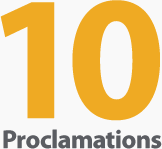
Tim Walker and Michael Silberberman run Biro Creative (design) and Echo Ditto (Tech Strategy), two of the more well respected new digital agencies around, that we collaborate with deeply. Their manifesto, that I am a huge supporter of, is here. Take a read: www.echoditto.com/insights/webthinking
I think they nailed it. Why am I so excited? I’ve been doing this Internet thing for a long time, and, coming from a non-geek background, every few years I have to ask myself, why am I still so drawn to this industry? Back in ‘97, it was the excitement of being on the ground floor of something that had never been done before – being part of a fundamental re-structuring of our society that was busting old hierarchies by pushing more information – and power – from the sacred halls of executives to the front lines. But this was just the first, kind of easy round of wrenching changes afoot.

What’s kept me engaged the last 5 years has been watching the web really come into its own – and change the game for us all yet again. With the old web, organizations could keep doing what they always did, throw money and talent at this "new channel", and produce some pretty decent results. It looked like it was working. But then performance started to drop, and a lot of what was done online started to resemble what was already done with a much older medium – direct mail or one way advertising. Nothing really changed.

Then Web 2.0 came along, and with it a great democratization of powerful web tools (technology being a commodity and all), another great “information boom” of content everywhere, more and more people entering the workforce as “digital natives”, and the desires of audiences to take more control over their lives. This has led to the growth of a new generation of small, smart, focused, and nimble orgs that are starting to run circles around their larger, more well funded, and much more bureaucratic forefathers. Orgs that come to mind that I’ve worked with recently are Avaaz.org, 350.org, and the campaign I helped run last year, TckTckTck.org – which baked open source principles into the core of its campaign structure and saw incredible network effects with a tiny team.

Why are these orgs so effective in a networked world? The answers are in the paper above: they have fundamentally re-thought and re-structured their orgs, rather than grafting the web onto an old, silo-ed structure.
I think what is happening here is nothing less than the transformation of our very institutions – I’m not sure any will be spared – towards fundamentally new operating models. The orgs that touch our lives will become more responsive, nimble, and collaborative – and ultimately more open, democratic and community driven – or their influence will continue to crumble as we get our needs met elsewhere.

And in case you think this is just a manifesto for small NGO’s, I’ve recently had conversations about the very points in this paper at institutions as varied as BC Hydro (power company with 2M customers), the City of Vancouver, and UNICEF Canada. This is where the world is going, and the leaders of the next wave of innovation will be those that fully embrace these principles
If you'd like to comment you can leave one here, or join the bigger conversation on the EchoDitto blog.






